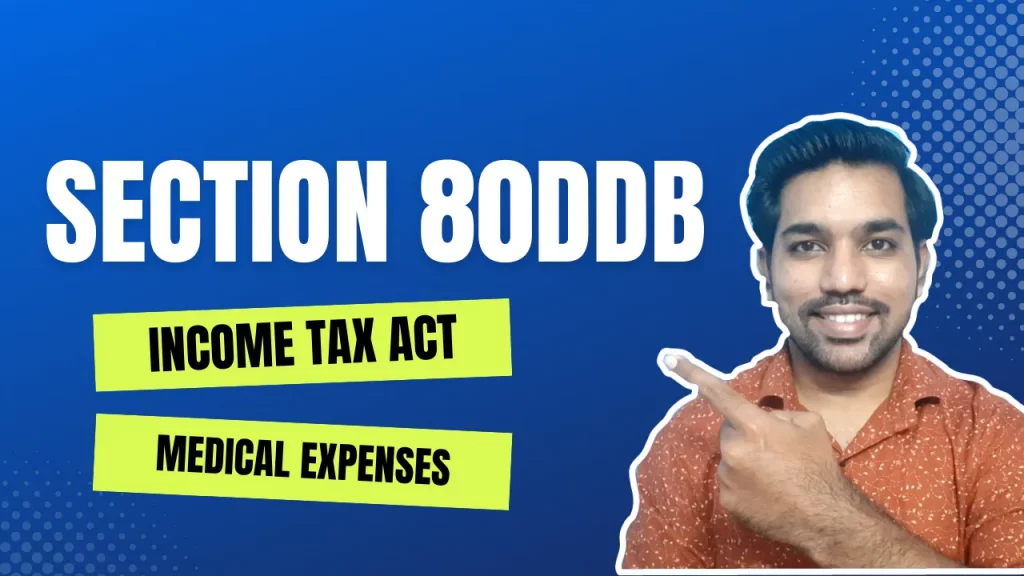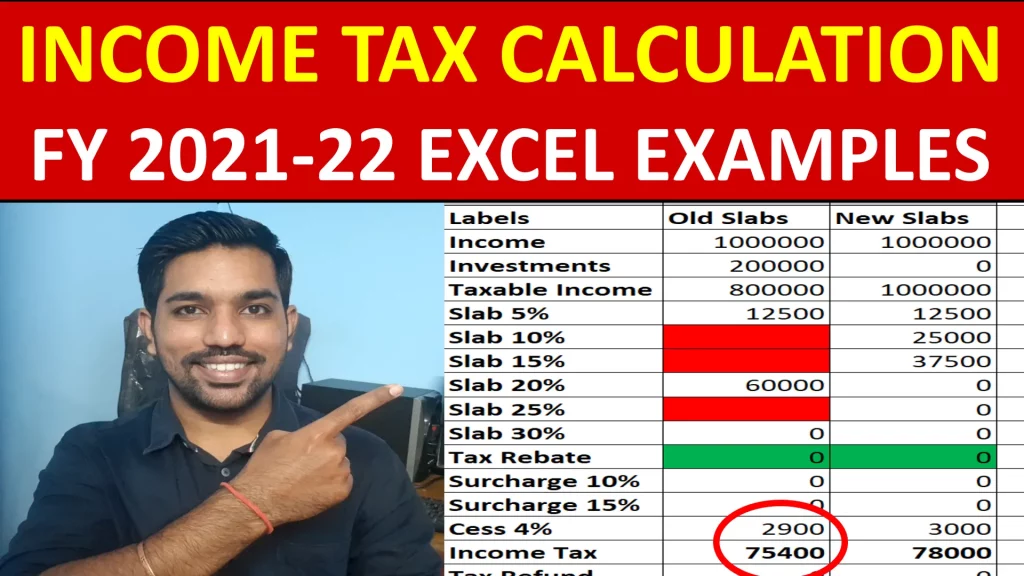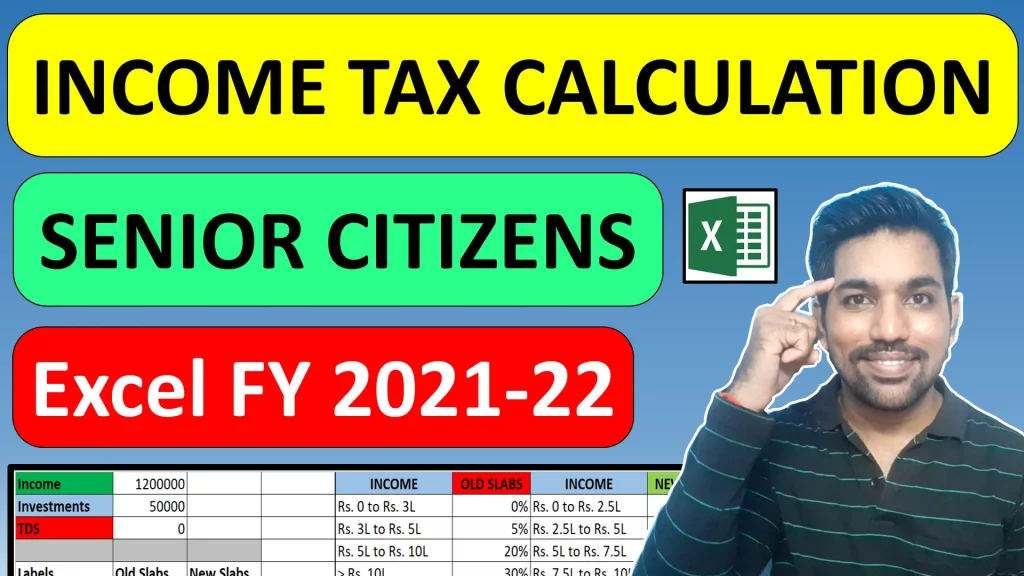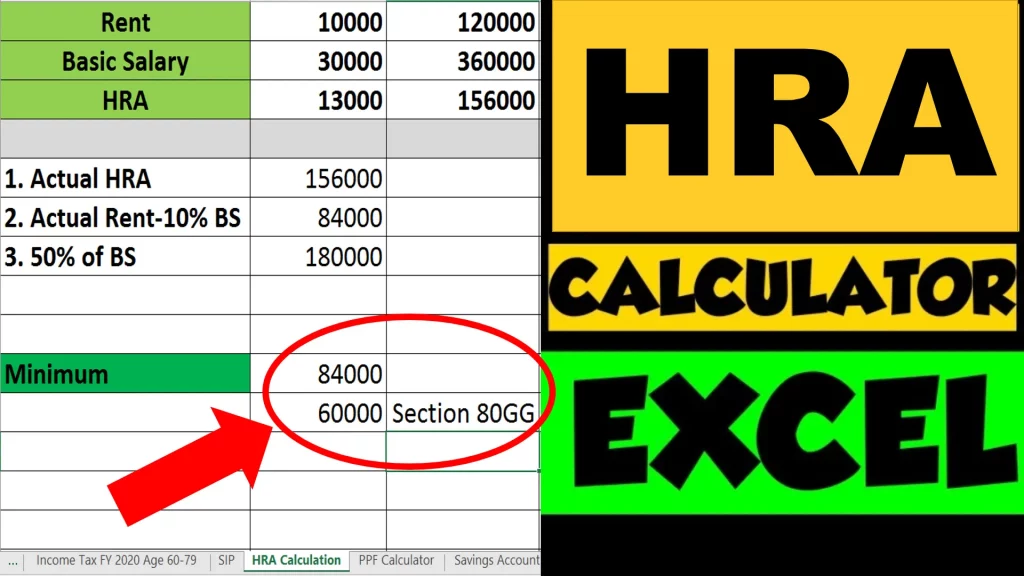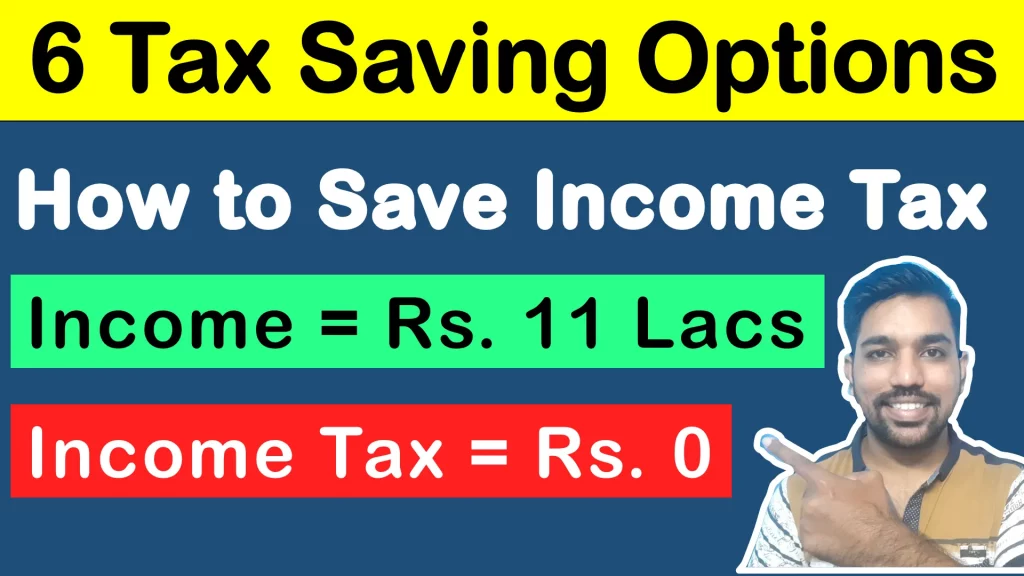Section 80DDB allows deduction against the medical expenses occurred against treatment of specific disease or ailments. This can be claimed by the tax payer, if he / she is bearing the medical expenses for treatment of self, spouse, children or dependent parents. Maximum of Rs. 40,000 can be claimed for non senior citizen’s treatment, and Rs. 1 Lakh can be claimed for senior citizens and super senior citizens treatment for diseases mentioned in below article.
Let us understand Section 80DDB in more detail.
What is Section 80DDB?
- Section 80DDB of income tax act allows you to claim deduction against the medical expenses occurred for specific diseases.
- This section is different from the medical insurance premiums paid under Section 80D. In 80D, you pay the insurance premiums and that amount can be claimed in financial year
- Where as under 80DDB, you can claim the expenses occurred for medical treatment in hospital, irrespective of whether you have taken medical insurance or not
- If treatment is done for non senior citizen than the limit under Section 80DDB is Rs. 40,000 else for senior citizen treatment, the limit is Rs. 1 lakh in a financial year.
- Note that you can claim 80DDB deduction only under Old Tax Regime
ALSO READ: Save Income Tax on Salary above 7 Lakh
Section 80DDB Eligibility
There are certain conditions to be eligible to claim deduction with Section 80DDB:
- You can be an individual or HUF (Hindu undivided family) to claim 80DDB deduction
- NRI (Non Resident Indian) cannot claim this deduction
- Corporates cannot claim this deduction as they do not belong to either individuals or HUF
- The deduction need to be claimed only by the person who has paid for the expenses and is the tax payer.
Love Reading Books? Here are some of the Best Books you can Read: (WITH LINKS)
Who can claim deduction with Section 80DDB?
- Individuals: Individuals undergoing the treatment for below mentioned disease for self, spouse, children or dependent parents can claim this deduction. By dependent we mean, the person undergoing the treatment must be dependent on the tax payer who is bearing the expenses and claiming them as tax deduction
- HUF: Any member undergoing the treatment can help the HUF (Hindu Undivided Family) to claim expenses occurred under 80DDB
Let us now see the list of specified diseases covered under 80DDB deduction.
Specified Diseases Under Section 80DDB
Below are the specific diseases included under Section 80DDB of income tax act:
- Neurological Diseases where the disability level is 40% and above:
– Dementia
– Dystonia Musculorum Deformans
– Motor Neuron Disease
– Ataxia
– Chorea
– Hemiballismus
– Aphasia
– Parkinsons Disease - Malignant Cancers
- Full Blown Acquired Immuno-Deficiency Syndrome (AIDS)
- Chronic Renal failure
- Hematological disorders
– Hemophilia
– Thalassaemia
ALSO READ: Emergency Fund and It’s Importance in Medical Expenses
Documents or Proof required for 80DDB
In order to claim tax deduction under 80DDB, you need to have prescription from specialist doctor of that disease to be submitted while claiming the tax deduction.
Earlier it was required to take the prescription or written proof only by doctors from government hospitals, but now you can take the prescription from private hospital doctors as well, provided the doctor is a specialist in mentioned disease for which treatment is recommended.
Section 80DDB Deduction Limits
- For non senior citizens, the maximum limit with 80DDB is Rs. 40,000. Which means the person undergoing the treatment must be of age less than 60 years
- For senior citizens of age 60 years or above undergoing treatment of any of the above mentioned disease, the maximum limit is Rs. 1 lakh in a financial year under Section 80DDB
80DDB amount adjustment with 80D Medical Insurance
Section 80D allows you to claim medical insurance premiums paid in FY with old tax regime, where 80DDB allows to claim the medical expenses occurred that you pay from your pocket.
In 80D, the insurer can provide you certain amount for medical expenses occurred for any of the above mentioned disease. Such amount need to be adjusted with Section DDB limit.
For example, if total treatment expenses occurred is Rs. 50,000 and insurer provides you Rs. 30,000, than you can claim only Rs. 10,000 under Section 80DDB due to Rs. 40,000 maximum limit in this section. So basically the amount provided by insurer need to be included under 80DDB and claimed accordingly.
For senior citizens, 80DDB limit is Rs. 1 lakh and accordingly the amount that can be claimed with 80DDB needs to be calculated after subtracting the amount received from medical insurance company.
Conclusion
So Section 80DDB of income tax act allows us to claim the expenses occurred for treatment of above mentioned diseases. It has a limit of Rs. 40,000 for non senior citizen’s treatment and Rs. 1 Lakh for senior citizens treatment. Both individuals and HUF can claim this deduction with old tax regime.
NRI (Non Resident Indian) cannot claim this deduction in 80DDB. Also, you need to have prescription from specialist (based on disease for which treatment is recommended) to claim this deduction.
Some more Reading:
- Rs. 2000 Sukanya Samriddhi Yojana Interest Calculation
- Monthly vs Yearly Deposits in PPF
- Rs. 1000 Mutual Fund Returns Calculation
Frequently Asked Questions
What is the Section 80DDB deduction limit?
Section 80DDB deduction limit is Rs. 40,000 for non senior citizen’s medical expenses of treatment, and Rs. 1 lakh for senior citizen’s treatment. The expenses occurred for treatment of specific diseases or ailments are covered in 80DDB.
Section 80DDB same as Section 80D deduction?
No. Section 80D allows deduction for the medical insurance premiums paid in a financial year that helps in case of emergency, where insurer will provide some financial help. Where as, 80DDB allows deduction of own expenses occurred for treatment in case of specific diseases.
Is Parkinsons Disease medical expenses included in Section 80DDB?
Yes Parkinsons Disease medical expenses is included in Section 80DDB for citizens of India. NRI (Non Resident Indian) cannot claim 80DDB deduction based on the income tax act.
Can we claim 80DDB deduction with new tax regime?
No. 80DDB cannot be claimed with new tax regime, since there are very limited number of deductions available with new tax regime. This section can only be used if you opt for old tax regime in financial year.
Save Home Loan Interest Amount!
Use Home Loan Excel Calculator that will help you to Save Interest Amount on Home Loan EMI.
Click below button to download Home Loan EMI and Prepayment Calculator in Excel:
Watch how Home Loan Calculator in Excel Works
Income Tax Calculator App – FinCalC
For Income Tax Calculation on your mobile device, you can Download my Android App “FinCalC” which I have developed for you to make your income tax calculation easy.
What you can do with this mobile App?
- Calculate Income Tax for new FY 2024-25 and previous FY 2023-24
- Enter estimated Investments to check income tax with Old and New Tax Regime
- Save income tax details and track regularly
- Know how much to invest more to save income tax
- More calculators including PPF, SIP returns, Savings account interest and lot more
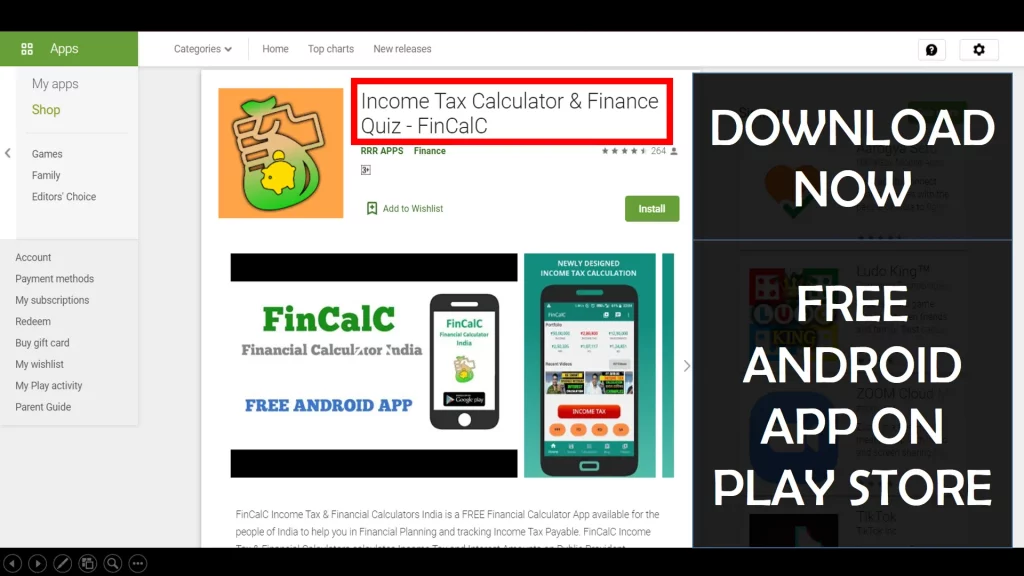
Use Popular Calculators:
- Income Tax Calculator
- Home Loan EMI Calculator
- SIP Calculator
- PPF Calculator
- HRA Calculator
- Step up SIP Calculator
- Savings Account Interest Calculator
- Lump sum Calculator
- FD Calculator
- RD Calculator
- Car Loan EMI Calculator
- Bike Loan EMI Calculator
- Sukanya Samriddhi Calculator
- Provident Fund Calculator
- Senior Citizen Savings Calculator
- NSC Calculator
- Monthly Income Scheme Calculator
- Mahila Samman Savings Calculator
- Systematic Withdrawal Calculator
- CAGR Calculator
I’d love to hear from you if you have any queries about Personal Finance and Money Management.
JOIN Telegram Group and stay updated with latest Personal Finance News and Topics.
Download our Free Android App – FinCalC to Calculate Income Tax and Interest on various small Saving Schemes in India including PPF, NSC, SIP and lot more.
Follow the Blog and Subscribe to YouTube Channel to stay updated about Personal Finance and Money Management topics.

